Could an everyday clothing item help protect your health? In this quick talk, TED Fellow Alicia Chong Rodriguez introduces us to a smart bra designed to gather real-time data on biomarkers like heartbeat, breath and temperature. Learn how this life-saving gadget could help close the gender gap in cardiovascular research — and, finally, usher women’s health care into the 21st century.
Visit to get our entire library of TED Talks, transcripts, translations, personalized talk recommendations and more.
The TED Talks channel features the best talks and performances from the TED Conference, where the world’s leading thinkers and doers give the talk of their lives in 18 minutes (or less). Look for talks on Technology, Entertainment and Design — plus science, business, global issues, the arts and more. You’re welcome to link to or embed these videos, forward them to others and share these ideas with people you know.
Become a TED Member:
Follow TED on Twitter:
Like TED on Facebook:
Subscribe to our channel:
TED’s videos may be used for non-commercial purposes under a Creative Commons License, Attribution–Non Commercial–No Derivatives (or the CC BY – NC – ND 4.0 International) and in accordance with our TED Talks Usage Policy (). For more information on using TED for commercial purposes (e.g. employee learning, in a film or online course), please submit a Media Request at
I am proudly named Alicia
after my grandma.
She dedicated her life
to women’s health as an obstetrician,
in a time when women were rarely allowed
to obtain medical degrees.
We lost her to a heart attack
when I was 13 years old.
When one of my cofounders, Monica, was 12,
she was waiting at school
for her mom to pick her up.
Only that didn’t happen,
because her mom, a 44-year-old physician,
had suddenly passed away from a stroke.
Unfortunately, our stories are common.
Heart disease and stroke
are the leading causes of death
and disability worldwide.
And for women,
it is not only harder to recognize,
diagnose and treat,
but after a heart attack or a stroke,
women also face higher mortality.
There are about 44 million women
living in the US with heart disease,
and the incidences for women
under 65 are on the rise.
So what’s going on?
The answer lies at the intersection
of two areas: data and medical devices.
Let’s look at data first,
or the lack of it.
When I was doing
cardiovascular research at MIT,
I had access to huge data sets.
Realizing that women were one
of the largest subgroups underrepresented
was eye-opening.
In fact, women were basically excluded
from cardiovascular clinical trials
until the NIH mandated inclusion in 1993.
This is why existing technologies
and therapies often fall short,
because most of them have been designed
using data primarily
from male animals and men.
And as artificial intelligence
helps turbocharge digital health,
there’s a danger that algorithms
mostly trained with male data and biases
will actually perpetuate the problem.
Next, let’s look at medical devices.
The “one type fits all” approach
doesn’t even take into account the fact
that heart disease and stroke
can present differently in women.
Way too often, female thresholds
are not programmed.
Smaller arteries cannot be visualized,
and poor clinical-grade monitoring systems
cannot accommodate
two different body shapes
or stages in life.
In the 1800s, Amelia Bloomer
led a movement against damaging corsets,
towards more comfortable
and useful garments for women.
She inspired us to think:
What if we could solve both the data
and the device challenge
by using a garment
that most women already wear daily?
What if a garment
designed to support women
could also augment their health?
Our idea is to turn the everyday bra
into an actual lifesaver.
And this is how we’re doing it.
This is our augmented garment platform.
It gives women the ability
to continuously and remotely
acquire physiological data.
By wearing these bras,
women can view insights and patterns
and keep an automated
journal in their phones,
giving them a simple way to tag symptoms
and collect life-saving data
to share with their doctors
for early detection
and targeted management.
It can even track the safety
and efficacy of certain therapies.
We’ve built medical-grade textile sensors
that can adapt to multiple
bra styles and sizes
for continuous, reliable
and repeatable data,
all around her torso and her heart.
We can track heart rhythm, breathing,
temperature, posture and movement,
and by applying algorithms,
we can use this data to decode symptoms,
articulate arrhythmia triggers
and generate personalized
digital biomarkers.
Unlike traditional biomarkers, like blood,
that take a snapshot in time,
digital biomarkers work more like a video,
using data collected over time
to explain, influence
and even predict health outcomes.
They have the potential
to enable care immediately.
No more wait time for results.
She has the data available
when she needs it the most.
With medical-grade technology
as easy as wearing a bra,
we could catch up, close the data gap,
enable easier participation
in clinical trials
and bring women’s health care
into the 21st century.
The more women that wear
these augmented bras,
the faster we can create
a truly meaningful and inclusive data set
on women’s health.
Collectively, this data
can enable breakthroughs
in digital diagnostics and therapeutics
to solve some of the biggest
health-care challenges
humanity faces today.
With our unique biological data,
our ability to gather more and more of it
and our ability to learn from it using AI,
the dream of making medicine
without bias and truly personal
can be achieved.
And that, of course, benefits all of us.
Thank you.
(Cheers and applause)
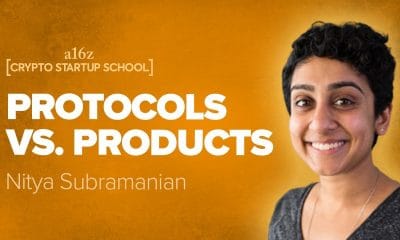
 Science & Technology4 years ago
Science & Technology4 years ago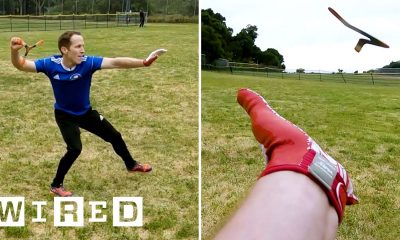
 Wired5 years ago
Wired5 years ago
 CNET4 years ago
CNET4 years ago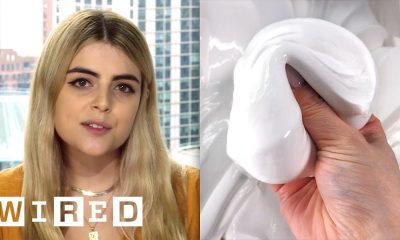
 Wired5 years ago
Wired5 years ago
 Wired5 years ago
Wired5 years ago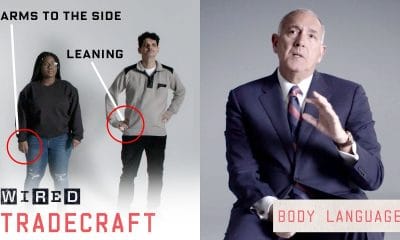
 Wired5 years ago
Wired5 years ago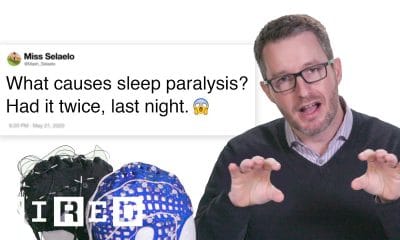
 People & Blogs2 years ago
People & Blogs2 years ago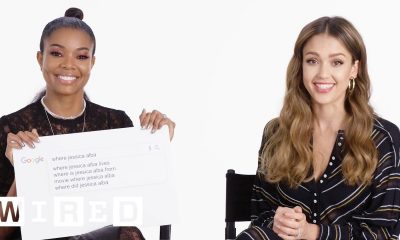
 Wired5 years ago
Wired5 years ago



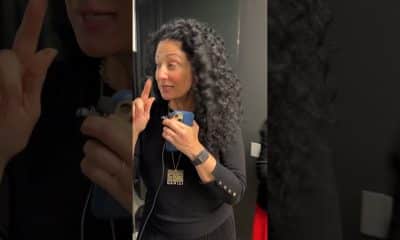





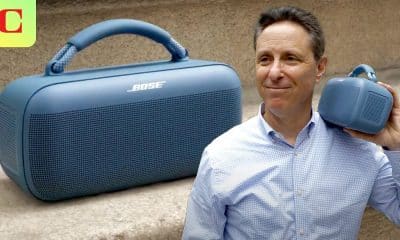






Rajendra Divecha
October 20, 2021 at 3:20 pm
Next invention: smart underwear for men!
Dark Soul
October 20, 2021 at 3:24 pm
Very interesting but not for me! I would rather die young from a stroke than live long under the stress of having something counting my breath and heartbeat!!
+ screw bras! … prefer patches!
Though seriously … it’s a very smart and inspiring idea 👍
Hippienolic 2
October 20, 2021 at 3:26 pm
Finally a bra that you can justify spending $90 on
Kevin Bailey
October 20, 2021 at 9:52 pm
Beautiful china wimin
Gladys Villero
October 20, 2021 at 3:31 pm
Why she doesnt look confident with what shes presenting?
jxj__
October 20, 2021 at 3:32 pm
What happened to the other video posted earlier?
Kehrey Anne Dean
October 20, 2021 at 3:37 pm
Great…. Now they wanna collect data on my boobs…. and at the same time…. Fill my body with more emf. Oh joy! Thanks… But no thanks!!!! Stop collecting data on people for hidden greedy purposes.
Erica Nelson
October 20, 2021 at 3:42 pm
Brilliant idea.
j.s [기마이] Varaba
October 20, 2021 at 4:05 pm
👀👍👍 쌍따봉~
Henry Strauss
October 21, 2021 at 10:04 am
Some ting wong
MultiBorsch
October 20, 2021 at 4:57 pm
What’s going on is obesity, not bras. Also men are way more succeptible to heart desease and stroke. Nice infomercial though.
sketchur
October 20, 2021 at 7:13 pm
Exactly ….We don’t need to buy something new to be more in-tune with our bodies. People need to just start paying attention to their diet, exercise, sleep and overall lifestyle better. A bra is not going to fix that.
way2girly
October 20, 2021 at 5:53 pm
That’s awesome!
HA
October 20, 2021 at 6:25 pm
When you see a 5 year old presenting a TED talk you know how sideways this whole thing has gone! Keep pumping garbage TED keep pumping garbage
Gabriella ballor
October 20, 2021 at 7:30 pm
How is this relevant to the video? Stop taking away from the situation at hand. This pertains to womens health. If you cannot respect that go somewhere else.
Robert Golden
October 21, 2021 at 4:11 am
She doesn’t present as anything but an adult female
Visão Setentrional72
October 20, 2021 at 6:30 pm
Great
Bia Bux
October 20, 2021 at 6:38 pm
How do you wash it if it has connectors?
YBOUZL
October 21, 2021 at 12:12 am
You dont
K B
October 20, 2021 at 7:30 pm
Very cool, happy to see this
Amirah
October 20, 2021 at 9:04 pm
I might get this wrong but since you’re putting a ‘smart’ bra very close to your body, won’t there be radiation? And that could lead to tumours forming? Could increase chances of breast cancer
John Alvitre
October 20, 2021 at 9:10 pm
This is cool. It would be cool if the app. also said…. “Calling 911” then gives you a 5 second delay so you can say nope, if it is a false read. Also, as a medical provider myself, I see this being designed for men too. I am really curious and would love to offer any insight on this project.
landofthelivingskies
October 20, 2021 at 9:27 pm
Where can we attain these bras ? Or is there a chance we could get a free sample SmartBra ? I’m over 50, live in Canada, and I would happily join a group of HeartSmart women.
Srey pich Daok
October 20, 2021 at 10:29 pm
Excuse me admin,why don’t have subtitle?
Lisa Love Ministry
October 20, 2021 at 11:29 pm
Seek the kingdom of God
Proverbs 9:10
devils/advocate
October 21, 2021 at 1:43 am
All hail Satan, the one being who fought for his own free will and for all mankind. Praise be to satan.
True Crime Queen TV
October 20, 2021 at 11:57 pm
Love your content!! Stay safe everyone 🌞❤️🌻
Iama freespirit
October 21, 2021 at 12:33 am
I had an aneurysm of the Brain which was found shortly before it burst…i thank Jehova for saving my life and making me go to the doctor when time was critical.
I was one of the lucky ones who came out almost normal after my surgery. Only a few minor long-term effects are still with me today, but it is nothing compared to over 45 years of daily disabling headaches…
l0gic23
October 21, 2021 at 12:35 am
No one ever covers privacy… Your data is the cash cow, not the price of the bra. The data should be owned by you with full granular control (if desired).
MandyWatchesYoutube
October 23, 2021 at 4:48 am
It’s medical research – your name wouldn’t be attached to the data.
l0gic23
October 24, 2021 at 1:35 am
@MandyWatchesYoutube it’s possible for data brokerages, insurance companies and others to figure out who individuals are from anonymized data…
Also, who profits from that research, how many times over do they profit and how much do they profit.
Your doctor does not care for your fitbit data and probably wont care about this data either…. But someone will profit, someone always does… You should not pay for someone to make billions not with the product you bought but the data they gather on you….
Manish Kumar
October 21, 2021 at 6:56 am
Ok, so when we are having a session on smart underwear, exclusively for male testicles.
Ruth Proctor
October 21, 2021 at 11:44 am
Good stuff
scott denoncour
October 21, 2021 at 11:56 am
You don’t need a bra your in the itty bitty titty club don’t worry about it
KIA SCHLUETZ
October 21, 2021 at 1:16 pm
Ok but this bra still doesn’t support my back dog
Nick Vasilatos
October 21, 2021 at 1:41 pm
Best bra is no bra.
Angela Bilyeu
October 21, 2021 at 4:08 pm
‘Easy as wearing a bra.’ I hate wearing those things. I think of them as torture devices. I was hoping this talk would help me find a comfortable bra. Interesting talk anyway. 😁
Ligia Sommers
October 22, 2021 at 2:53 am
Doesn’t our Apple Watches or Fitbit watches show all this type of data? Mine does… 🤔🤔🤔
wah mun Choo
October 23, 2021 at 2:15 pm
Marketing oppurtunity in the weakness of women… Booo..
electrical bijli fitting
October 24, 2021 at 5:00 am
Nice job 🆗